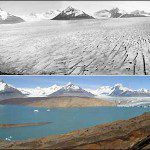The International Climate Science Coalition (ICSC) today released the names of over 140 leading climate experts from 17 countries who are asking the United Nations and other supporters of this month’s Climate Change Conference to produce convincing OBSERVATIONAL EVIDENCE for their claims of dangerous human-caused global warming (AGW) and other changes in climate.

The COPENHAGEN CLIMATE CHALLENGE demands that the UN publicly substantiate each of ten fundamental assertions that underlie current climate concerns – see http://www.copenhagenclimatechallenge.org/.
“With revelations that critical temperature data used by the UN’s Intergovernmental Panel on Climate Change appear to have been intentionally distorted to increase warming trends, national representatives to the Copenhagen Climate Change Conference must demand a thorough re-examination of the scientific evidence supporting proposed mitigation actions”, said Challenge endorser Dr. Tim Patterson, ICSC Chair and Professor of Earth Sciences at Carleton University (Ottawa, Canada). “This should not be limited to simple temperature data auditing but must also include a re-evaluation of many of the climate-related assertions uncritically accepted by politicians and media worldwide.”
Perhaps most significant among the scientists’ challenges was for proponents of AGW theory to comprehensively substantiate claims that:
– Recent climate change is unusual in comparison with historical records;
– Human emissions of carbon dioxide and other ‘greenhouse gases’ (GHG) are dangerously impacting climate;
– Computer-based models are reliable indicators of future climate.
“The science of climate change is not settled; it is evolving rapidly with critically important discoveries, many of which contradict IPCC findings, coming out every month,” asserted ICSC science advisor, Dr. Robert M. Carter, also a Challenge endorser and Professor, Marine Geophysical Laboratory, James Cook University (Townsville, Australia). “The already weak case for dangerous man-made global warming is getting weaker still as our understandings advance, so governments need a several decade long time-out while the science matures before even considering the possibility of GHG emission restrictions.”
“While policies designed to conserve energy, reduce pollution and help vulnerable peoples adapt to climate change are important to pursue, proposals to severely curtail GHG emissions in an effort to control climate make no sense, given the current state of scientific knowledge,” concludes Challenge endorser Dr. Wibjörn Karlén, Professor Emeritus, Physical Geography, Stockholm University (Uppsala, Sweden). “Instead we need to focus on environmental issues we know we can positively impact – air, land and water pollution being primary examples.”
The ICSC is an association of scientists, economists and energy and policy experts working to promote better public understanding of climate change. ICSC provides an analysis of climate science and policy issues which, being independent of lobby groups and vested political interests, is an alternative to advice from the IPCC. ICSC thereby fosters rational, evidence-based, open discussion about all climate, and climate-related, issues.


